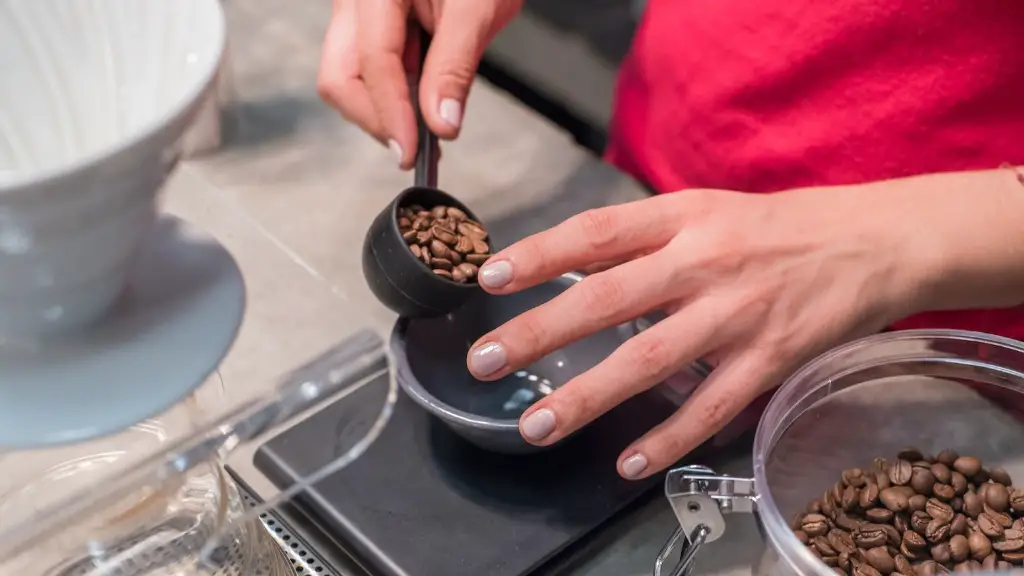It is no secret that drinking coffee before a workout is a common practice for many fitness enthusiasts. However, there is less agreement on how much time before a workout one should drink coffee, with opinions ranging from immediately beforehand to 30-60 minutes ahead. To gain insight on how to optimally time your pre-workout coffee consumption, let us look at what experts have to say.
According to Natalie Rizzo, registered dietician and fitness expert, the answer to this question depends on one’s individual goals as well as the type of workout they are engaging in. For example, if one’s goal is to increase their endurance during their workout, then drinking their coffee an hour before may be beneficial as their body has more time to digest the caffeine fully and blood sugar levels can remain more consistent for a longer period of time. On the flip side, if someone is looking for the caffeine to give them a short burst of energy before lifting weights, for example, drinking their coffee 30 minutes prior would suffice.
When it comes to regular coffee consumption, Dr. Frank Lipman, physician and health columnist for the New York Times, recommends limiting consumption to one to two cups per day. He cautions that too much caffeine can cause a number of adverse effects, such as irritability, restlessness, and even headaches. If a strict caffeine regiment is observed, drinking coffee prior to working out can enhance performance.
As Dr. Lipman points out, timing your caffeine consumption before a workout is important, but regulating the amount of caffeine you consume is equally important. If you are looking to maximize your results, it is recommended that you experiment with different timing intervals to find the best time to drink your coffee in relation to your workout session. Fitness trackers can be useful tools to help you establish a regular caffeine regimen.
In addition to tracking your performance, you can also monitor how the caffeine affects you mentally. According to Dr. Tricia Witzel, psychologist and mental health specialist, the effects of caffeine range from mental clarity and improved focus to anxiety and difficulty sleeping. If you are sensitive to caffeine’s effects, you may consider limiting your intake and be sure to drink plenty of water to stay well hydrated.
Ultimately, pre-workout coffee consumption should be tailored to one’s individual needs and goals. Experimenting with different timing intervals, caffeine doses, and types of coffee can help you figure out what works best for you. If you take the time to find what works for you, you can use the right kind of coffee in the right amount at the right time to gain maximum benefits from your workout.
Coffee Quality
Choosing the right kind of coffee can significantly affect the level of benefits gained from drinking coffee prior to a workout. When selecting coffee, opt for high-quality coffee that has been carefully roasted and ground. This can help increase the levels of beneficial compounds in coffee that aid in mental clarity and focus. For example, studies have shown that coffee beans that have been carefully roasted and ground have higher levels of antioxidants that have been linked to improved cognitive performance and focus.
Another key component of a quality cup of coffee is the type of coffee bean used. As Dr. Rizzo points out, different combinations of coffee beans can have different levels of caffeine, so it can be beneficial to know what type of coffee bean you are consuming and how it will affect your performance. The caffeine content of beans also varies according to roasted or grind, so if you are looking for an extra boost of energy before a workout, opt for a dark roast.
Finally, the preparation of the coffee is important. Most experts suggest that French press, espresso, or cold brew coffee are the optimal types of coffee to consume prior to a workout. These methods of coffee preparation help optimize caffeine levels and taste, as well as avoid the intake of any unwanted ingredients that could lead to unpleasant side effects.
Timing
Timing is the key to getting the most out of your pre-workout caffeine consumption. As mentioned by fitness experts, consuming coffee too close to a workout can lead to a quick spike in energy but can also come with a significant crash that can hinder performance. On the other hand, consuming coffee too far ahead of time can lead to a lack of energy and focus. To get the most out of your pre-workout coffee consumption, it is important to find a time period where it will have optimal effects.
For most people, drinking coffee 30 minutes to an hour prior to a workout will yield the greatest benefits. This time frame allows the body and brain to receive the stimulant effects of the caffeine while simultaneously providing enough time to avoid a caffeine crash. Additionally, allowing this amount of time gives your body enough time to digest the caffeine and avoid any negative symptoms, such as stomach cramps or an upset stomach.
In addition to taking into account the amount of time before a workout one should consume caffeine, it is also important to consider how much caffeine one should consume. Generally, it is recommended to limit consumption to 200-400 milligrams, which is the equivalent to two to four cups of brewed coffee. Higher doses of caffeine may lead to unpleasant side-effects, and it is important to be aware of your personal tolerance.
Physical Impact
The physical impact of drinking coffee prior to a workout should also be taken into account when determining the optimal time to consume caffeine. According to Dr. Lipman, caffeine can have both positive and negative effects on physical performance. While it can increase focus and alertness, it can also contribute to shakiness and restlessness. Additionally, Dr. Lipman cautions that over-consuming caffeine can lead to dehydration and can interfere with the body’s natural ability to adequately regulate its temperature.
When it comes to sport specific performance, it is important to consider the type of sport and the level of intensity. Caffeine is generally regarded as beneficial for sports that require short bursts of energy, such as sprints, weight lifting, and high-intensity interval training. On the other hand, endurance activities such as running, cycling, and swimming may require a longer window before consuming caffeine in order to benefit from its stimulant effects.
If you are looking to optimize your performance and get the most out of your coffee consumption, it is important to take into consideration both the physical and mental effects of coffee on your body. Taking the time to find the right time to consume caffeine can help increase your performance and give you the advantage you need to reach your fitness goals.
Alternatives
If you find that coffee is not the right option for you, there are plenty of other caffeine options available to help you get the energy boost you need before a workout. Energy drinks, such as Monster or Red Bull, are popular alternatives that can provide lasting energy and focus. Additionally, green tea is a popular beverage due to its antioxidant properties and low caffeine content.
If you are looking for more natural alternatives to coffee, nut-based products, such as macadamia nuts and cashews, can provide a natural energy boost. Dr. Witzel also recommends bee pollen and bee pollen powders that are rich in B vitamins and can provide a more sustained energy impact than coffee without any side-effects.
Finally, supplements such as ginseng and guarana can be beneficial as well. While these supplements provide an extra boost of energy and help you focus, they should be used with caution as they have been known to have adverse effects on some individuals. Therefore, it is important to be mindful of the type and amount of supplements that you take and consult with a healthcare professional before making any decisions.




